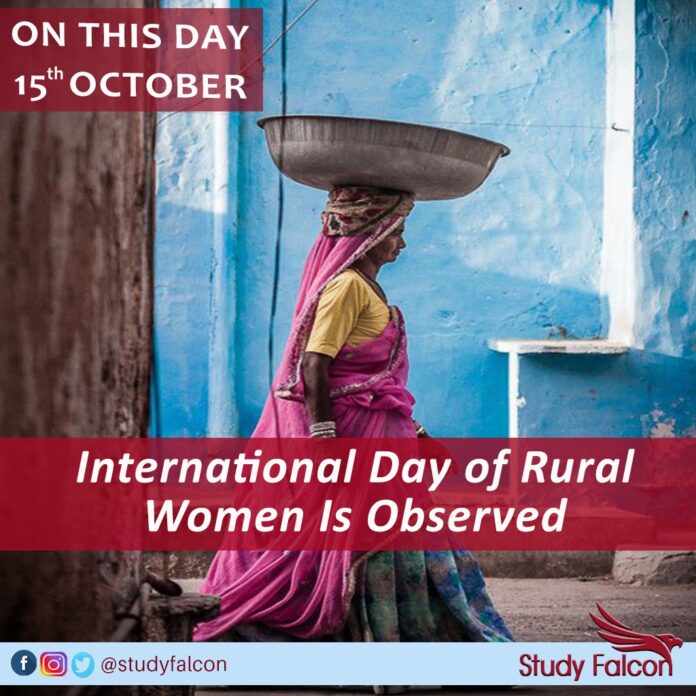The United Nations has dedicated October 15 as the International Day of Rural Women. From agriculture to food security, nutrition, land and natural resource management, domestic care and work, rural women are at the forefront and are taking charge by being in the driver’s seat. They collect biomass fuels, process foodstuffs, pump and collect water; 80 per cent of households without piped water rely on women and girls for water collection. As rural women are at the front of the battle lines where natural resources and agriculture are threatened, this year’s theme for International Day of Rural Women have been kept keeping the climate change in mind.
The International Day of Rural Women was created in 1995 by Civil society organizations at the Fourth World Conference on Women in Beijing and was declared an official UN Day in 2007 by the UN General Assembly. WWSF took the lead in mobilizing governments around the world and fundraised for the campaign.
The first International Day of Rural Women was observed on 15 October 2008. The Day recognizes the critical role and contribution of rural women, including indigenous women, in enhancing agricultural and rural development, improving food security and eradicating rural poverty. It is purposely held the day before World Food Day, in order to highlight the role played by rural women in food production and food security.
In many of the world’s poorer countries women play a vital role in the rural economy. They are involved in crop production and livestock care, provide food, water and fuel for their families, and carry out other activities to diversify their families’ livelihoods. Gender inequity plays a special role within agriculture, as women are often pivotal to ensure household food security. Yet they are often not given access to resources or have little decision-making power.
In India, millions of rural women organized in self-help groups have helped to fill acute shortages and gaps by producing masks and hand sanitizers, providing fresh food through community kitchens, offering financial services, and communicating vital COVID-19 information in rural communities. In China, rural women’s cooperatives re-oriented their activities to supply much-needed masks to their communities and beyond. In Mali, rural women-owned enterprises and cooperatives are preparing survival kits for vulnerable persons and in Senegal, women rice producers are supplying government sourcing for food transfers. Yet, rural women are labouring under acutely disadvantageous conditions. Already insufficient infrastructure and services in rural areas have been stretched to the limit; rural women’s invaluable care and productive work during the pandemic has burgeoned, in many places without clean and safe water, sanitation and hygiene, energy supply or healthcare services.
The pandemic has also heightened the vulnerability of rural women’s rights to land and resources. Discriminatory gender norms and practices impede women’s exercise of land and property rights in most countries. Since women’s land rights are often dependent on their husbands, COVID-19 widows risk disinheritance. Women’s land tenure security is also threatened as unemployed migrants return to rural communities, increasing pressure on land and resources and exacerbating gender gaps in agriculture and food security. Gender-responsive investments to expand basic infrastructure, healthcare and care services in rural areas have never been more critical. Bolstering women’s land rights in law and practice can help protect women from displacement and losing their sources of livelihood. This International Day of Rural Women is a key moment to galvanize action by all stakeholders to support rural women and girls to not only rebuild their lives after COVID-19 but increase their resilience to be better prepared to face future crises.
Rural women play a crucial role in agriculture, food security and nutrition, land and natural resource management, and rural enterprises. They have been at the front lines of responding to the pandemic even as their unpaid care and domestic work increased under lockdowns, mobility is restricted, supply chains are disrupted, and climate and conflict crises compound COVID-19 impacts.
On International Rural Women’s Day, United Nations Women, along with the United Nations community, is drawing attention to the implementation of commitments to gender equality. This year on International Day of Rural Women (15 October), the spotlight is on the urgent need for Building rural women’s resilience in the wake of COVID-19, for building back better by strengthening rural women’s sustainable livelihoods and wellbeing.










